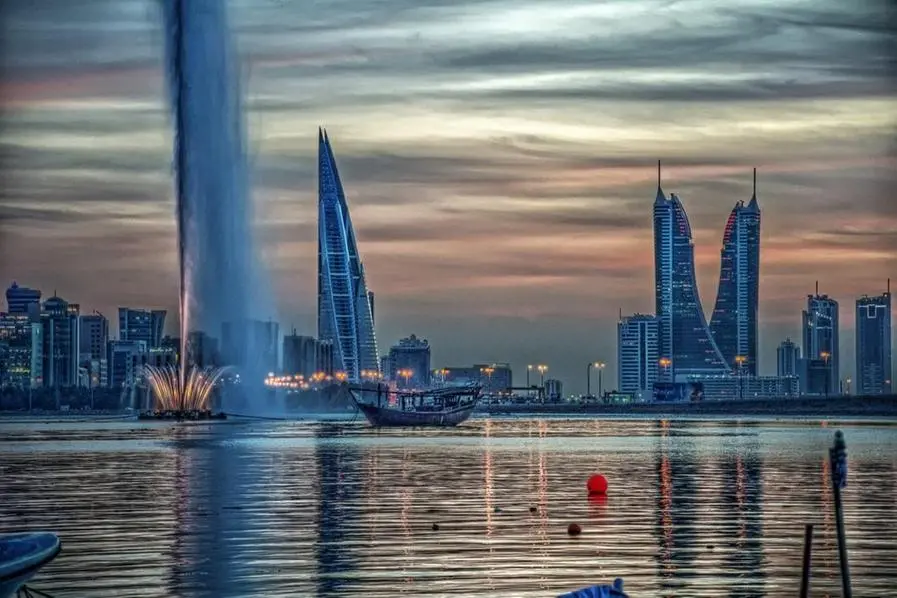PHOTO
A new report comparing the cost of doing business in Bahrain’s financial centre to the UAE’s two main financial centres in Dubai and Abu Dhabi has said the former is 35 percent cheaper than its regional neighbours.
A press release issued by Bahrain’s Economic Development Board states that the report produced by KPMG identified a series of metrics, including commercial rents that are up to four times lower and staff costs that “can be 60 percent below” neighbouring countries, which highlight Bahrain’s cost-effectiveness as a financial centre.
The report sets out an “annual average cost of operations” for a typical financial services firm with up to 20 staff - one ‘c-suite’ executive, two department heads, two directors, five managers and 10 analysts. It argues that the overall cost for such a business would be $1,696,243 in Bahrain, compared to $2,643,703 in Dubai International Financial Centre (DIFC) and $2,619,935 within Abu Dhabi’s international financial centre, the Abu Dhabi Global Market (ADGM). Per workstation, the report said that Bahrain Financial Harbourcosts $380, compared to $970 within ADGM, $980 within DIFC’s Gate Precinct and $1,520 within DIFC’s The Gate building.
The report also said the average cost of living in Dubai was 70 percent higher than in Bahrain, and Abu Dhabi was 45 percent higher. Based on the rental of a three-bed villa for a household of 4 people, including K12 American school fees for one child and remuneration for domestic help, living in Bahrain would cost $51,252, while Dubai would cost $89,667 and Abu Dhabi would cost $74,194.
The press release states that Bahrain “was the first country in the GCC to set up a banking system”, and said that finance firms could base themselves anywhere in the kingdom and were not just restricted to free zones.
Dalal Buhejj, senior manager of financial services for Bahrain’s Economic Development Board, said in the press release: “As the GCC’s most experienced financial services centre, we have both the soft and hard infrastructure in place for the finance industry to thrive.”
However, despite its early lead, the report also gives some indication that its financial services sector has been somewhat usurped in size by its UAE neighbours. The KPMG report states that there are about 12,600 people working in Bahrain, compared to 95,000 in the United Arab Emirates.
Dubai International Financial Centre’s website states that a workforce of 22,768 work within 2,003 registered companies within its centre. Last month, a plan was announced for DIFC 2.0 – an extension of Dubai’s International Financial Centre that would see 13 million sq ft of new space added, including 6.4 million sq ft of office space, 2.6 million sq ft of creative space, 1.5 million sq ft of residences and 1.3 million sq ft of retail.
In a media briefing held by S&P Global last week, the ratings agency’s sovereign credit analyst, Trevor Cullinan, highlighted the difficulty in identifying competitive advantages when discussing the economic diversification plans of regional governments.
“They're all kind-of going for the same areas and it's not clear that you need more than one financial hub, for example, in this region,” he said.
He acknowledged that there were “important financial sectors in different economies”.
“Bahrain, historically, has been an important financial sector. It still is, to some extent, but I think Dubai still leads the way. Whether or not there's a need, or it's even possible, for the other GCC economies to supercede Dubai remains to be seen, I think.”
A spokesperson for DIFC declined to comment on the report. ADGM was not immediately available for comment.
(Reporting by Michael Fahy; Editing by Mily Chakrabarty)
Our Standards: The Thomson Reuters Trust Principles
Disclaimer: This article is provided for informational purposes only. The content does not provide tax, legal or investment advice or opinion regarding the suitability, value or profitability of any particular security, portfolio or investment strategy. Read our full disclaimer policy here.
© ZAWYA 2019




















